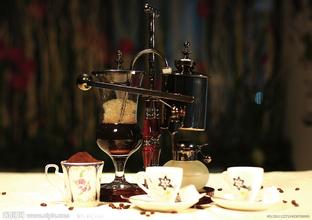Coffee is the wisest drink writers like coffee very much when they create new works

Artists and writers like coffee very much when they create new works. Coffee has always been a drink that ignites creativity; it brings emotion, creativity and inspiration. In the past, coffee was used as a food and a medicine. Today, if consumed properly, coffee can prevent rather than cure health problems. When you drink coffee in the company of a good book or a good friend, while enjoying the delicious and fragrant coffee, you must also benefit from its health advantages.
Ethiopia was the first place in the world where people lived. Ethiopia is called the roof of Africa because of its mountainous mountains. It is the birthplace of coffee. The Arabs were not only the first to grow coffee, but also the first people to trade coffee. In the centuries that followed, coffee was grown in the Yemeni region of Arabia and then spread to Persia, Egypt and Syria. Coffee can be drunk not only at home, but also in public cafes called "cafes". The popularity of coffee houses is unprecedented. People often patronize coffee houses to participate in a variety of social activities. They not only drink coffee and talk, but also listen to music, watch performances, play chess and keep abreast of the latest news of the day. As a result, cafes soon became an important center for the exchange of information, often referred to as "schools for the wise".
The first to introduce coffee in words were two knowledgeable doctors: Razes (CE, 865-925) and Avicenna (980-1037), both of whom introduced the advantages of coffee. Drinking coffee can cure all kinds of diseases, including fever and frigidity.
Over the centuries, with the continuous enjoyment of coffee, the Islamic Empire developed the highest level of civilization and culture in the world. At a time when Europe is still mired in ignorance and barbarism, and when most people are still illiterate and uncivilized, Islamic rulers have begun to build schools and libraries on a large scale. The medical library at Mansuri Hospital in Cairo is so large that six librarians have to be employed. Cairo has also built a large library comparable to the "Palace of Wisdom" in Baghdad, where lawyers, astronomers, grammarians and physicists often give lectures. Cairo University was founded in 970 AD, while the Salerno Medical Center, the first famous medical center in the Middle Ages, was also established in Sicily near Arabia, while the University of Montpellier, the first medieval university with outstanding medical achievements, was established in 1181 in the south of France near the Spanish border. After that, many colleges and universities such as the University of Paris, the University of Bologna, the University of Oxford, the University of Cambridge and the University of Padua were established one after another, and the focus of medieval medicine was not in the laboratory and hospital, but in the library. Knowledge of traditional Greek medicine and other fields was spread to the Arab world through Christian civilians who were driven out of the Byzantine Empire. Accompanied by coffee, they experienced countless sleepless nights, translating the works of Greek writers into Semitic, early Syriac or Hebrew, and later Arabic.
Coffee shops encourage people to meet and communicate and solve problems around them. At that time, the cafe was a place of intellectualism, scientific discovery and debate. Coffee was first introduced to England in 1610. Before there was a coffee shop in London, the first coffee shop opened in Oxford in 1650. Cafes are much softer in interior decoration and atmosphere than noisy bars and breweries. The cafe has bookshelves, mirrors and fine furniture, and the atmosphere here is calm and orderly. Part of the reason for the popularity of coffee is the need of a new middle class: civil servants and businessmen need to keep their brains, not their limbs, awake. By 1663, there were 82 cafes in London, and by 1700 there were more than 500. The London Cafe, which costs only a penny for entry, has become a hotbed of thought for writers, politicians, businessmen and scientists who discuss and spread the news here. Big cafes even publish their own newsletters. In the 18th century, the first English newspaper appeared in a cafe and was read aloud. As a result, the prosperity of the cafe culture that inspires meaningful meetings for thinkers is seen as the beginning of truly informed public opinion.
Some cafes have become learning centers because members of the Royal Society hold regular "Club of the Wise" meetings here. They often hold meetings at the Devereaux Cafe on Strand Avenue. Isaac, president of the society. Sir Newton, the great astronomer Professor Harley, the collector Sir Hans Sloane (many of his treasures are part of the British Museum) and other intellectual men who often come to the Graecian Cafe, as described in the Gossip magazine, "usually spend the whole night learning about ancient relics and thinking about anything new that will bring new knowledge". To this end, Graecian regulars will have a "very pleasant enjoyment" here, especially at night, by sorting out the chronology of the Iliad. In the 17th and 18th centuries, Graecian had a high reputation in London's cafes.
The Westminster area, near St. James's Palace, is the birthplace of political life in London, and its cafes are the centre of these activities. Politics is the main topic in these meeting places, where scattered rumors and gossip are often surprisingly accurate. Cafes are so important to political life in London that Jonathan Swift once wrote in a letter to his friends in a cafe: "I do not believe that the information provided by any authority is more credible or instructive than political discussion in a cafe." As you can imagine, the Whigs and royalists funded different cafes. The Whigs chose the St. James Cafe and the royalists chose the Cafe Tree Cafe, both of which are near the Pall mall. The most popular saying in 1724 was that "Whigs go to the Cafe Tree Cafe as often as royalists do in St. James's Cafe." From the time of Queen Anne to the late George III dynasty, these cafes were a gathering place for politicians, parliamentarians and fashionable gentlemen. Jonathan Swift collects email at St. James's Cafe, and Richard Steele collects most of the political news for "gossipers" from cafe conversations. St. James's Cafe and Cafe Tree Cafe, like most cafes, were involved in politics and eventually became elite clubs, but in their heyday they were open to all who paid.
Different industries are beginning to be associated with cafes in specific areas. The will Cafe in the convent garden is popular with literary giants such as John Dryden, who regularly discuss the latest poems. Westminster cafes are a favorite destination for politicians, while lawyers prefer the Lincoln hotel area. Isaac Newton, Christopher Lane and Robert Hook held a series of cafe meetings to discuss the movement of the earth, and the concept of flying to the moon was first put forward by Dr. John Wilkins over a cup of coffee in the cafe. This intellectual atmosphere has also enhanced the cafe's reputation for accommodating dissidents. King Charles II tried to weaken their influence by closing cafes or raising taxes in 1675, but failed. In the 19th century, when many cafes abolished their open policies and turned to gentlemen's clubs serving tea, coffee and wine, cafes began to decline. The cafe's status as an exchange center has been eroded by improvements in news, transportation and postal systems. Cafes are no longer a hotbed of antagonism, rebellion and dissent.
The remaining cafes have become vulgar in nature and mixed with gambling and prostitutes, as described in the novels of Dickens and Trollope. The mass production promoted by the East India Company also means that coffee can be bought at street shops and tea can be drunk at home. Long before the emergence of modern coffee shops, coffee chains such as Lyons Corner prevailed during the war, while the classic Italian Formica coffee appeared in the 1950s. In the past 10 years, coffee shops have sprung up on the streets of the world under the influence of Starbucks, Costa and other coffee retail giants. But the only way to improve the taste of the cafe is to restore the unique atmosphere of the 17th century.
Coffee shop phenomenon-the rise of high-quality drinks in an elegant atmosphere is so fast that universities are considering offering a course in "Coffee Shop Sociology" to trace the rise and fall of coffee shops since the 17th century. Today, our life is basically made up of work, family and shopping or entertainment, and even dinner is replaced by fast food, snacks or restaurants. We no longer meet with our neighbors and communicate as before. Our lives are now narrowed down to a series of appointments that communicate by phone or email. As a result, a place like a cafe, which sociologists call the "third space", is important because we can stay after shopping and may run into someone without an appointment.
Now, efforts are being made to restore the traditional "cafe" atmosphere of the 17th and 18th centuries, and millions of cafes around the world are looking for ways to create a warm atmosphere to adapt and enhance the function of their social and business activities.
Important Notice :
前街咖啡 FrontStreet Coffee has moved to new addredd:
FrontStreet Coffee Address: 315,Donghua East Road,GuangZhou
Tel:020 38364473
- Prev

Coffee Culture Collection Coffee gives birth to Coffee Culture
1. What is coffee? To put it simply, it is an ordinary drink, one of the three largest drinks in the world. The volume of global trade is second only to oil, which is more popular than tea in the world. Coffee is definitely not just an instant and monotonous drink, nor is it just a coffee-flavored drink with a lot of milk, sugar, ice, etc.; coffee is a kind of coffee that can be tasted and felt slowly.
- Next

Coffee is enjoyable. It feels good to have some coffee when you are alone all day.
It's nice to have some coffee when you're alone, but it's not as enjoyable as drinking with friends. Of course, the most intoxicating thing is to taste the coffee with someone you like or love. When you start drinking, you should only drink coffee in the early morning, a large cup for adults (150 ml) and a small cup for children (50 ml). Coffee with milk can increase its nutrients, which is very suitable for children and young people.
Related
- How did the Salvadoran coffee industry develop in Central America?
- What exactly does the golden cup extraction of coffee mean?
- The Origin of Coffee flower
- [2023 Starbucks World Earth Day] there are more meaningful things besides free Starbucks coffee!
- What kind of coffee is there in Spain? 9 Flavors of Spanish Coffee
- Aromatic African coffee| Kenya's coffee culture and historical production area
- Liberica Coffee Bean knowledge: the characteristics of Liberian Coffee beans of the three original species of Coffee beans
- The origin and formula of Spanish latte introduces the taste characteristics of Bombon coffee in Valencia, Spain.
- How to adjust the solution of over-extracted coffee
- What is the tasting period of coffee beans? What is the period of coffee and beans? How should coffee wake up and raise beans?

